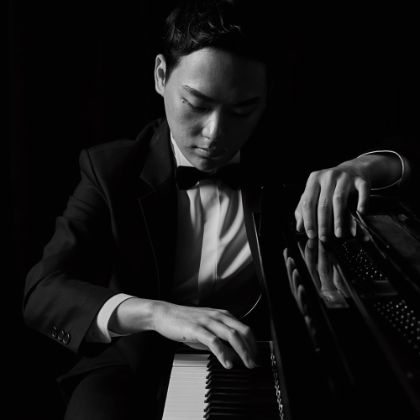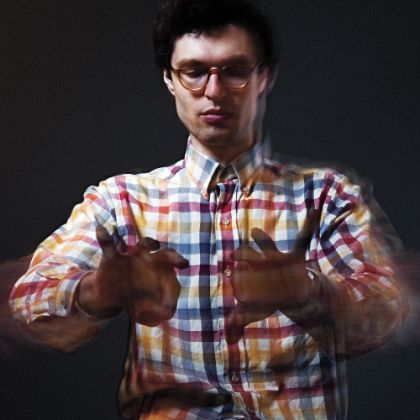Listen Magazine Feature
Catching up with the upwardly mobile Rafal Blechacz
By Ben Finane
Rafal Blechacz won the Chopin competition at the age of twenty. At twenty-eight, he received the Gilmore Artist Award, presented every four years to an international pianist following a mysterious and confidential selection process. The Gilmore includes a three-hundred-thousand-dollar unrestricted grant.
‘It’s very important to have a place with good acoustics and a good piano where you can hear what is happening.’
“It’s a lot of money!” says Blechacz, when asked how he might invest the funds to better his art. “Not long ago,” he says, “I was thinking about a new studio with better acoustics. It’s very important to have a place with good acoustics and a good piano where you can hear what is happening. We will see… obviously I need a little longer to think about it.”
I ask Blechacz whether, being Polish, he feels a special connection to Chopin. “Yes and no,” he says. “When I play some polonaises or mazurkas by Chopin, sometimes it’s easy to understand the Polish atmosphere in these Polish dances. But there are many pianists who are not Polish — Pollini, for example — who play them very well. I think what’s most important is the sensibility. The artist must go deeply into the music, into its logic.”
According to Blechacz, the Chopin sensibility is complex. “There are so many different characters and different emotions, melodically,” he says. “There is so much joy, particularly in Chopin’s early compositions, as in the first mazurkas. So it’s very important to be close to these kinds of feelings. I think that my role, the pianist’s role, is to enter into the composer’s feelings, his emotions, and recreate them afresh.”
We can’t talk about being Polish and playing Chopin without veering toward Arthur Rubinstein, Blechacz’s favorite pianist. “I have many recordings of Rubinstein’s,” he beams, “especially live from the concerts. His playing has so much energy and, I would say, joy when he’s on the stage, and he can play for the audience. His interpretations, especially from the live recordings, are very energetic, and I like that.
“He loved the public and the public loved him. It’s so important to feel the emotions and the atmosphere that is created by the audience. I had an interesting experience not too long ago, playing in Hamburg; I played Four Mazurkas by Chopin, Opus 17. The last one is very special because the last chord is very quiet. And after this chord there was a long silence: nobody in the audience applauded. I felt that they were completely in my world, focused on my interpretation. And that was the greatest reward for me because I knew that they were really listening.”
Blechacz has also recorded fellow countryman Karol Szymanowski (1882–1937), who is less well-known to listeners but the pianist aims to change that, and recently took the composer’s First Sonata (which he recorded for Deutsche Grammophon) on tour in Europe and the United States.
“I think early music by Szymanowski was inspired by Scriabin, and a little bit by Rachmaninoff,” says Blechacz. “You can hear them both in the last movement of the First Sonata. His second period is more Impressionistic, more Ravel and Debussy. The Metopes are wonderful pieces. Piotr Anderszewski recorded them a few years ago, another Gilmore artist!”
For now, Blechacz is working on the Schumann Concerto and remains “focused on the Classical style.” The future is open.
This article originally appeared in Listen: Life with Music & Culture, Steinway & Sons’ award-winning magazine.
related...
-

Chang-Yong Shin — Musical Expression
Pianist ChingYong Shin on grappling with the Classical repertoire
Read More
By Ben Finane -

Disruption
Timo Andres tackles an unfinished Mozart concerto.
Read More
By Brian Wise -

Crowd Favorite
Outsider pianist Lucas Debargue Revitalizes the classics.
Read More
By Brian Wise